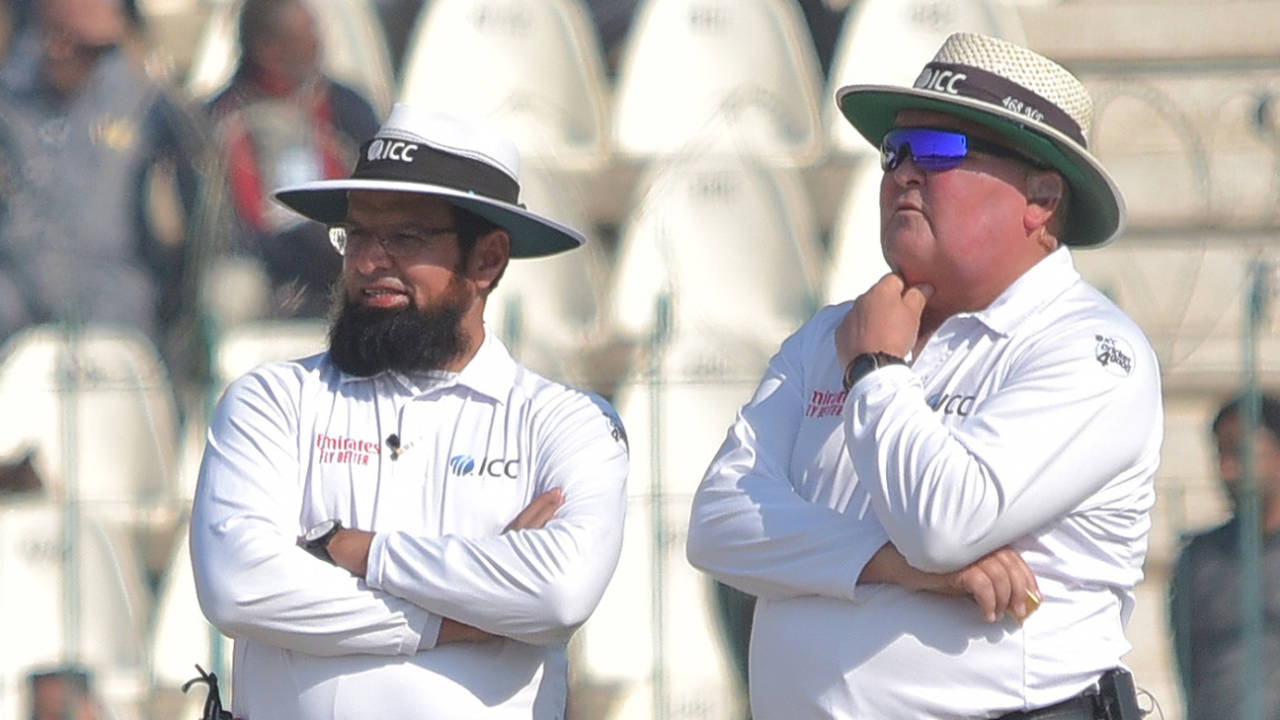Ollie Pope's diving catch down the leg-side to dismiss Pakistan batter
Saud Shakeel cost Pakistan and shouldn't have been given out, according to Pakistan captain
Babar Azam. Speaking after Pakistan succumbed to a 26-run defeat in Multan that confirmed a series loss to England, Babar said it appeared as if the ball had touched the ground
"The Shakeel dismissal cost us," he said. "It looked to us as if the ball had touched the ground. As a professional, you have to respect the umpire's decision, but we felt the ball had been grounded."
Shakeel's dismissal came at a vital juncture in the match, with lunch approaching and Pakistan reasonably positioned to pull off their second-highest fourth-innings run-chase. Pakistan required another 64 runs to win when Shakeel - six runs away from a hundred - pulled at a short ball outside leg stump, getting a tickle on it. Pope dived to his right to snare it low off the ground, although the replays suggested significant uncertainty as to whether the catch was clean.
Part of the frustration of Shakeel's dismissal was down to the manner in which the decision was reached, with Aleem Dar sending a soft signal of "out" to third umpire Joel Wilson. Wilson ended up sticking with it to confirm the dismissal.
Despite discussions among the ICC Full Members around the protocols surrounding the on-field soft-signal, there has been no change to the playing conditions itself (the IPL has
scrapped the soft-signal). The regulations continue to state that in the event of "inconclusive replay evidence, the on-field decision communicated at the start of the consultation process shall stand".
The TV umpire does review the footage and has complete authority to make his/her decision independent of the soft signal. Increasingly the trend among match officials has been to offer clarity to any decision and one way they have agreed to do that is to avoid using language that reflects that - so words such as 'conclusive' or 'inconclusive' referring to evidence have been removed from the radio communication between the TV and on-field umpires and instead, the former simply conveys his own decision as either out or not out.
The issue is likely to be on the agenda of the ICC's cricket committee when it next meets in March.
"I think it's for the umpires to decide [if the soft signal should be done away with]," Babar said. "Like I said, we felt the ball was grounded."
The Pakistan dressing-room's reaction was one of disbelief after Shakeel's dismissal was upheld, revealing both surprise and a sense of the importance of the moment. Control of the match switched hands once and for all, with England taking the final three wickets with Pakistan still well away from the target.
England captain
Ben Stokes was more equivocal in his view. Immediately after the match, he said he felt there weren't any doubts about the ball carrying, but also pointed out those sorts of decisions could end up going either way.
"I don't think [there were any doubts about the catch], personally," he said. "The only thing where you start worrying is when it gets looked at for a long period of time because that's when you start having doubt in your own head. I've been part of games before where I've been on the team who's been on the receiving end of those decisions and you're always like, 'that's not carried'.
"You see a lot of lot of those decisions and those type of catches in cricket. You could say the similar thing was when Rooty got caught at short leg - you could say that might have touched the floor. But you've just got to go with what the umpire's decision is. It went our way but I've been involved in a few decisions where stuff like that has gone against us. But you can't change that."
The man at the centre of the controversy was certain the ball had reached him on the full but admitted that, after that, it was hard to be sure.
"I knew it had carried," Pope said. "I didn't think it had bounced before. As a keeper when you've got the gloves on you honestly can't tell. I didn't think it had touched the ground after. When you have gloves on you feel it go in but that's it."
Danyal Rasool is a sub-editor at ESPNcricinfo. @Danny61000

